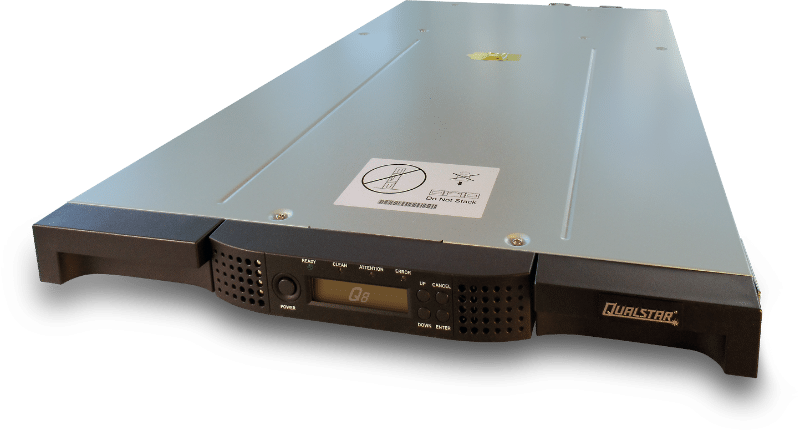In the modern data landscape, organisations face a relentless growth of information, which calls for efficient, scalable backup and storage solutions. Among the various tools available, an autoloader provides a streamlined and automated way to handle data backups while minimising human intervention. Often considered a middle ground between single tape drives and more complex tape libraries, a tape autoloader offers a robust solution for companies looking to enhance their data storage strategy without the need for large-scale systems.
This editorial delves into the core functionality of an tape autoloader, its primary benefits, and why it can be the right choice for businesses looking to upgrade their data protection strategy.
A tape autoloader brings several unique advantages to the data storage landscape, blending automation with efficiency and reliability. Here are some of the primary benefits:
Enhanced Automation: With a tape autoloader, businesses can automate routine backup tasks, reducing the need for IT staff to manage physical tape handling. The automated loading and unloading of tapes mean backups can occur after hours, minimising disruptions to daily operations.
Cost-Effectiveness: For organisations seeking an affordable yet robust solution, an autoloader provides a significant cost advantage over larger tape libraries. While it lacks the multi-drive capacity and scalability of a library, it delivers solid functionality at a fraction of the cost, making it a budget-friendly choice for smaller backup requirements.
Compact Design: Autoloaders typically have a compact form factor, making them an ideal fit for smaller IT environments with limited rack space. Their streamlined design allows them to deliver automated backups without the footprint or complexity of larger data storage systems.
Reliability and Durability: Leveraging tried-and-tested tape technology, autoloaders offer reliable, long-term data retention. This stability is especially valuable for companies in need of a dependable backup solution that can withstand the test of time and environmental factors. Tape’s inherent durability and longevity make autoloaders a strong choice for businesses prioritising long-term data storage.
Reduced Maintenance Requirements: Thanks to their simplified design, autoloaders typically require less maintenance than larger tape libraries. Fewer mechanical components reduce the chances of breakdowns, keeping maintenance costs lower and ensuring consistent performance over time.

A tape autoloader, also known as a tape autoloader, is an automated device designed to handle and switch multiple tape cartridges within a single drive. This setup enables sequential, unattended data backups across multiple tapes, which helps companies optimise data storage and retrieval without constant manual management. The tape autoloader houses a robotic arm that moves tapes between a magazine (or storage rack) and a single tape drive, enabling automated access to tapes during the backup and recovery process.
An tape autoloader is typically loaded with a set number of tapes – commonly between eight and sixteen – allowing it to operate autonomously for an extended period. This autonomy makes autoloaders particularly useful for smaller organisations or departments that don’t require the advanced features of a larger tape library but still need reliable backup functionality.
While both autoloaders and tape libraries aim to automate the data backup process, there are distinct differences between the two. A tape library is a more comprehensive solution, with multiple tape drives and often hundreds or even thousands of tapes, supported by a sophisticated robotic system that allows for simultaneous data processing across multiple drives. This multi-drive setup enables higher throughput, making tape libraries ideal for large enterprises with extensive backup needs.
In contrast, an autoloader is typically limited to one tape drive. This limitation means it can only process one tape at a time, sequentially loading and unloading tapes as needed. However, the simplicity of this setup makes it more affordable, manageable, and ideal for smaller data environments where large-scale backup isn’t necessary. While a tape library can handle concurrent operations across multiple tapes, an autoloader’s sequential processing model is more than sufficient for smaller backup requirements.
A tape autoloader is ideal for organisations that require reliable, automated backups but may not have the storage volume or budget for a full-scale tape library. For example, small to medium-sized businesses (SMBs) often find autoloaders an efficient, practical solution for regular backups and disaster recovery. Tape autoloaders are also well-suited to specific departments within larger enterprises, such as finance or HR, where data volumes are manageable but need frequent, reliable backup.
Similarly, remote offices and branch locations can benefit from the simplicity of an autoloader. Unlike data centres, which may house more extensive storage solutions, smaller sites can use an autoloader to secure data autonomously, reducing reliance on centralised backup systems.
Selecting a tape autoloader involves considering factors such as capacity, compatibility, and ease of use. First, businesses should evaluate how many tapes the autoloader can hold to ensure it can meet their backup requirements without frequent reloading. Most autoloaders range between 8-16 tapes, making them ideal for lower-volume backup needs.
Compatibility with existing backup software is another critical factor. Most autoloaders are compatible with popular backup solutions, but it’s essential to verify compatibility to prevent integration issues.
Finally, ease of use should be a consideration. A tape autoloader simplifies the backup process, but intuitive controls and straightforward software integration can make day-to-day operation easier for IT staff.
In today’s data-driven world, the need for automated, cost-effective backup solutions is more pressing than ever. While disk-based and cloud storage options have become popular, tape remains a resilient, affordable option for long-term data storage. Autoloaders bring the reliability of tape into a more manageable, accessible format that aligns with the needs of smaller IT environments and specific departments within larger organisations.
For businesses looking to build a robust, cost-effective backup solution, an autoloader offers a blend of automation, reliability, and simplicity. It’s a strategic investment that combines affordability with the peace of mind that data is secure, recoverable, and ready for any future needs.
Smarter, strategic thinking.

Keep me up-to-date with news and announcements regarding LTO Ultrium Tape.
I consent to the Privacy Policy.